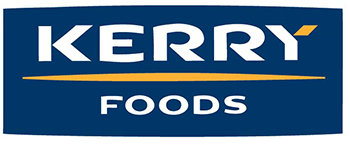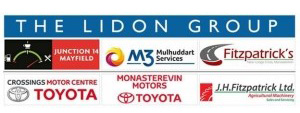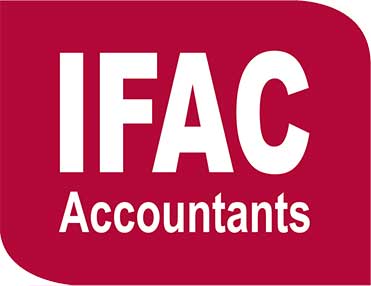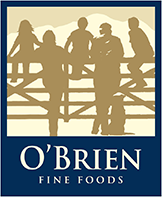
Competency Based Interviews:
What is a competency based interview?
Behavioral, Structural or Competency Based Interviews are used to show how you would demonstrate certain behaviors / skills in the workplace. You will be asked to give an example of a situation or task that led you to take a certain course of action.
Competency based interviews are equated with story telling. During the interview you will be asked questions like “tell me about a time when you had to deal with a difficult customer?” Most of you will have heard of the STAR technique when answering competency questions. Basically, this is describing how to answer questions with a start, a middle and an end. As with telling a story, the more description and energy you put into it, the more impact the story will have.
How to prepare for a Competency Based Interview:
At Leinster Appointments, our Consultants are experts at helping you prepare for competency based interviews so if you’re represented by us you will be in good hands. Most job descriptions highlight the key competencies required for the role, if this is not clear it is important to request these in advance. Leinster Apppointments have extensive knowledge in this area and will ensure you are well prepared for your interview. We will provide you with a list of competency based interview questions which are categorised and are available here for download.
Competency based interview questions
Your initiative to solve problems
The interviewer can ask about how you had used your initiative to solve any difficult problem at the workplace. The question may also ask you about any situation in which you were supposed to solve a problem without being informed of the complete details.
Your achievements
The interviewer can also ask about the achievement which you think was the most important for you, professionally and personally speaking. If you think that there were two different achievements on the professional level as well as on the personal level, the interviewer may ask you to elaborate on the reasons.
The most difficult incident and other difficulties
The Interviewer can also ask about the most difficult incident you have ever had to handle. Also, the interviewer may ask you about the person whom you have found to be the most difficult to work with, in addition to the reasons why. The interviewer may also ask you whether your differences with the person were resolved in an amicable manner or in any other manner.
Your leadership
Depending on the job that you are seeking, you may also be asked to give an example of a case in which you demonstrated any leadership qualities. These questions are team leader interview questions but are often asked of any individual.
Competency based interview answers
The questions that are asked are quite significant, and it is essential that you answer them in the best way possible:
- The best way to answer these questions is to be concise, crisp and to the point.
- You should not meander away from the point while answering these questions, because meandering way from the question will imply that you are inventing an answer at best, or would mean that you are a person who has no integrity at worst.
- Firstly, ascertain that you make the interviewer understand the problem that you were facing.
- Do not place the blame on anybody, or crib/complain about anything.
- Let the interviewer decide whose side he or she should be on.
- Make sure that you inform the interviewer about the steps that you took as an individual and as a team to ensure that the problem was sorted out without any hitches.
- You may also tell the interviewer about the success that you experienced with these steps.
- You can also inform the interviewer as to how you would presently handle the situation as opposed to your handling method employed in the past.
The difference between skill, competency and behavioral:
Skill is a part of competency. Competency consists of three parameters- Knowledge (K), Attitude (A) and Skills(S).
For example- I might be having very good interpersonal skills or people skills, but I will not be competent to join a company as HR Professional unless I possess adequate education/experience (Knowledge) and the right temperament/ behavior (attitude).
While rating skills, you have to determine what abilities are required to perform a job practically but while rating competency, you have to determine the set of abilities/ skills required along with the knowledge and attitude needed for the said job.
STAR Technique:
S/T – Situation or Task – This sets the scene. You will describe the situation or task and be creative with your description. If possible, try to use examples that are relevant to the employer.
A – Action – This is outlining what you did or the action you took. Most interviewees fall down here by using the word “we” instead of the word “I”. Do not make this mistake.
R – Result – This is where you describe the results or outcomes. Again quantify these results for more impact.
It is helpful to frame your answer as a story that you can tell. Typically, the interviewer will pick apart the story to try to get at the specific behaviour(s) they seek. They refer to this as “digging a well.” The interviewer will sometimes ask you open ended questions to allow you to choose which examples you wish to use. When a part of your story relates to a skill or experience the interviewer wishes to explore further, he/she will then ask you very specific follow-up questions regarding your behaviour. These can include “What were you thinking at that point?” or “Tell me more about your meeting with that person.” or “Lead me through your decision process.”
Whenever you can, quantify your results. Numbers illustrate your level of authority and responsibility. For example: “I was a shift supervisor.” could be “As Shift Supervisor, I trained and evaluated 4 employees.”
Be prepared to provide examples of when results didn’t turn out as you planned. What did you do then? What did you learn? Your resume will serve as a good guide when answering these questions. Refresh your memory regarding your achievements in the past couple of years. Demonstration of the desired behaviours may be proven in many ways. Use examples from past internships, classes, activities, team involvements, community service and work experience.
Example of a STAR Answer
Situation: During my internship last summer, I was responsible for managing various events.
Task: I noticed that attendance at these events had dropped by 30% over the past 3 years and wanted to do something to improve these numbers.
Action: I designed a new promotional packet to go out to the local community businesses. I also included a rating sheet to collect feedback on our events and organized internal round table discussions to raise awareness of the issue with our employees.
Result: We utilized some of the wonderful ideas we received from the community, made our internal systems more efficient and visible and raised attendance by 18% the first year.
Examples of Behavioural Questions
Behavioural questions can be difficult if you are not prepared. Always try to be conscious about what the recruiter is trying to find out about you by asking you a particular question. Here are some examples:
- Describe a situation in which you were able to use persuasion to successfully convince someone to see things your way.
- Describe an instance when you had to think on your feet to extricate yourself from a difficult situation.
- Give me a specific example of a time when you used good judgment and logic in solving a problem.
- By providing examples, convince me that you can adapt to a wide variety of people, situations and environments.
- Describe a time on any job that you held in which you were faced with problems or stresses that tested your coping skills.
- Give me an example of a time in which you had to be relatively quick in coming to a decision.
- Tell me about a time in which you had to use your written communications skills in order to get an important point across.
- Give me a specific occasion in which you conformed to a policy with which you did not agree.
- Give me an example of an important goal that you had set in the past and tell me about your success in reaching it.
- Tell me about a time when you had to go above and beyond the call of duty in order to get a job done.
- Give me an example of a time when you were able to successfully communicate with another person even when that individual may not have personally liked you (or vice versa).














